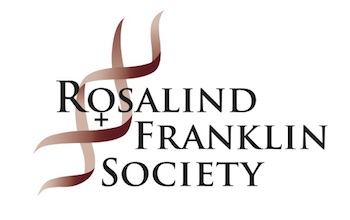|
Dear Colleagues,
I am pleased to include another issue of RFS Briefings with some timely and encouraging updates on women in science.
In particular, please note the announcement for 2023 Vilcek Prizes for Creative Promise in Biomedical Science:
The Vilcek Foundation will award three Creative Promise Prizes of $50,000 each to young, immigrant biomedical scientists who demonstrate outstanding early achievement. Applications are open through June 10, 2022. Read more.
Please continue to share important news and opportunities with us so that we may share it with you, and others who are committed to supporting the careers of exceptional women in science.
Stay safe and sound,

Karla Shepard Rubinger
Executive Director
Rosalind Franklin Society
www.rosalindfranklinsociety.org

Five trailblazing women scientists at The Rockefeller University.
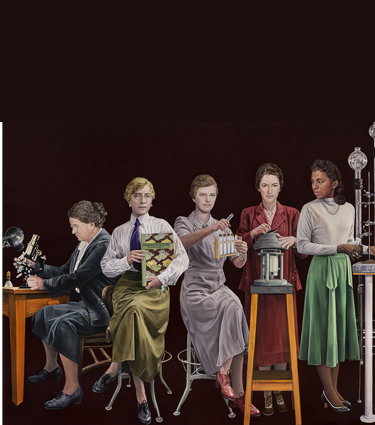
“Five Trailblazing Women Scientists at The Rockefeller University”
Florence R. Sabin, Louise Pearce, Rebecca C Lancefield, Gertrude E Perlmann, and Marie M. Daly.
Brenda Zlamany, 81 x 100 1/4 inches, oil on canvas, 2021
In 2019, the University’s Women & Science Initiative and Women in Science at Rockefeller came together in what is now called the Women & Science Portrait Initiative. The purpose of this partnership was to commission the portrait of an historic woman scientist from Rockefeller. It now hangs in Abby Aldrich Rockefeller Lounge. Rockefeller University is an important member of our Council of Academic Institutions. Read more.
At 90, still studying ancient pollen.
Linda Heusser turned 90 years old on April 12, and the only birthday present she really wanted was another sediment core to study. The adjunct researcher at Columbia University’s Lamont-Doherty Earth Observatory analyzes pollen from marine sediments in order to better understand climate trends going back as far as 2.3 million years. She has worked at Lamont on and off for decades. Read more.
Nominate a 2022 STAT Wunderkind.
STAT Wunderkinds is a chance to celebrate early-career researchers who are not yet independent scientists or program leaders. STAT wants to honor postdocs, interns, fellows — people who have terminal degrees in hand, but aren’t running their own research programs yet. Entries are due by July 29, 2022. Read more.
Diverse perspectives empower creative solutions.
Awarded annually, the Vilcek Prizes honor outstanding immigrant professionals in the arts and sciences, and recognize leaders who are champions of immigrant causes. Meet the 2022 Vilcek Foundation Prize winners in the online celebration. Read more.
Kizzmekia Corbett on the pandemic, public service, and her path to becoming a scientist.
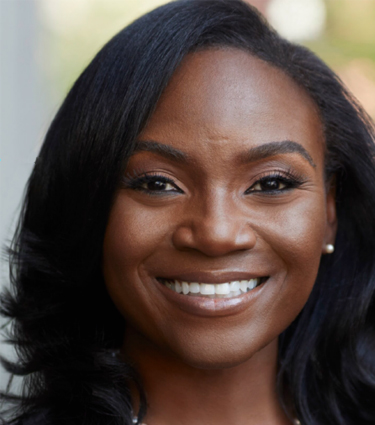
The world knows Kizzmekia Corbett as one of the designers of the Moderna Covid-19 vaccines. And in her new job as an assistant professor at Harvard’s T.H. Chan School of Public Health, Corbett plans to work on vaccine design to help the world better handle future pandemics. She was recently named to the inaugural STATUS List, which recognizes standout individuals in health, medicine, and science. Read more.
Why women scientists are rallying around six-year-old bug and frog lover Lyra.
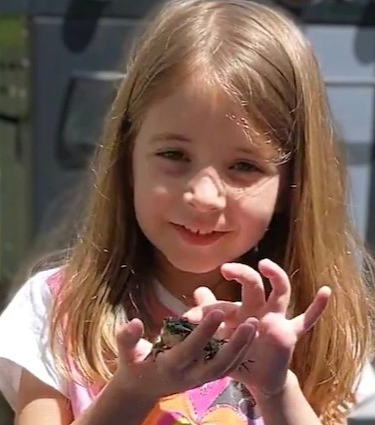
After receiving a heartbreaking email, Dr. Ann Jones goes on a mission to prove that 'girls DO like spiders' on this week's What the Duck podcast. Dr. Jones contacted women scientists around the world to share their stories about their love of bugs, frogs and spiders, and how they broke through barriers and carved out successful careers in science. Photo by Julie Cann. Read more.
Academic medicine’s glass ceiling: Author’s gender in top three medical research journals impacts probability of future publication success.
Women scientists have historically been underrepresented as authors in top medical research journals. Through increased awareness and calls to action, this is changing, but inequality persists. This study demonstrates that not only are women underrepresented as first, second, and last authors in high-impact journals, there is significant variation in the representation of women scientists amongst these journals. Read more.
Ursula Bellugi, pioneer in the world of sign language, dies at 91.
Ursula Bellugi, a researcher at the Salk Institute for Biological Studies, made strides in understanding the brain and the origins of language, both spoken and signed. She was among the first to demonstrate that sign language was just as complex, abstract and systematic as spoken language. She died on Sunday in San Diego. She was 91. Read more.
NASA astronaut Jessica Watkins celebrates ‘milestone’ for diversity in space industry.
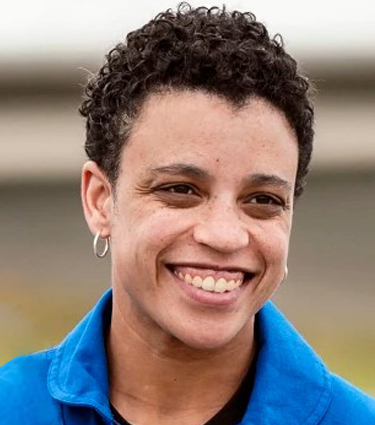
NASA astronaut Jessica Watkins joined a small yet groundbreaking list as she became the fifth Black woman to go to space and the first Black woman to serve aboard the International Space Station. Watkins’ mission has drawn praise from diversity and inclusion experts, but it shows just how far Black women still have to go in the white, male-dominated profession. Read more.
The scientist who co-created CRISPR isn’t ruling out engineered babies someday.
Jennifer Doudna is the co-discoverer of CRISPR editing, the revolutionary method for engineering genes. In 2020, she shared a Nobel Prize with fellow scientist Emmanuelle Charpentier. The two became the sixth and seventh women to win the award in chemistry. Antonio Regalado recently spoke to Doudna about the formidable power of versatile gene editing as well as the possible downsides of the technology. Read more.
Girls shun physics A-level as they dislike ‘hard maths’, says social mobility head.
Girls do not choose physics A-level because they dislike “hard maths”, the UK government’s social mobility commissioner has claimed, prompting anger from leading scientists. Dr Jess Wade, a physicist at Imperial College London who campaigns for equality in science, said: “I honestly can’t believe we’re still having this conversation. It’s patronizing, it’s infuriating, and it’s closing doors to exciting careers in physics and engineering for generations of young women.” Read more.
How Paxlovid came to be: From the germ of an idea to a vital tool against Covid.
The story of Paxlovid is a reminder that the path from a biological idea to a useable medicine depends on thousands of decisions, any of which can result in the medicine not making it. Read more.
Early Ukrainian Women Scientists.
These early Ukrainian women scientists, all born in the 19th century, came from 5 different physical and natural sciences, studying fossils, the human body, space, and mathematics. Each bio begins with a very short summary, so you can scroll through the pictures and summaries to get a quick impression of their lives and achievements. Read more.
Backlash erupts as N.Y.U. weighs hiring scientist accused of harassment.
Graduate students, faculty and alumni from New York University’s Grossman School of Medicine staged a walkout Wednesday to protest a report that the school may soon hire Dr. David Sabatini, a biologist facing allegations of sexual harassment. Read more.
Diversifying Stem Cell Biobanks: Towards Inclusive Precision Medicine and Health Equity.
Increasing the diversity of stem cell biobanks presents a key opportunity to ensure that disease research captures the full diversity of humanity and benefits all communities in need. Hear from experts Ru Gunawardane, PhD, Ekemini A. U. Riley, PhD, John Greally, PhD, DMed, and Scott Noggle, PhD as they explore this opportunity and call the stem cell community to action. Read more.
Marianna Limas, Social Media Manager
Nilda Rivera, Partnership and Events Manager
|

